
|
The Astrology Center of America, 207 Victory Lane, Bel Air, MD 21014 Tel: 410-638-7761; Toll-free (orders only): 800-475-2272 |
|||||||
|---|---|---|---|---|---|---|---|
| Home | Author Index | Title Index | Subject Index | Vedic Books | Tarot | E-Mail: | |
 |
Vivian Robson, scholar |
|---|
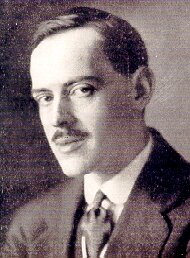 Vivian Erwood Robson was born on May 26, 1890, at 12:04 pm, Birmingham, England. He died on December 31, 1942. He held a Bachelor of Science degree, as you will find the initials B.Sc. after his name in his books. Further details of his life are sketchy, and this despite a staggering stellium in Gemini in his 10th. (Go set up the chart & marvel.) Vivian Erwood Robson was born on May 26, 1890, at 12:04 pm, Birmingham, England. He died on December 31, 1942. He held a Bachelor of Science degree, as you will find the initials B.Sc. after his name in his books. Further details of his life are sketchy, and this despite a staggering stellium in Gemini in his 10th. (Go set up the chart & marvel.)
At the Astrologer's Memorial web page, it says he was the British curator of Geology and Paleontology in the British Museum. (I expect this will have been removed by the time you read this.) This is incorrect. I contacted the British Museum, the big place on Great Russell Street, and was directed to their sister institution, the Natural History Museum, in South Ken. Which is where paleontology would be found anyway. No one there had ever heard of him. There were no records of any kind. The archivist at the British Museum was of help, however. He found Vivian Robson's application for a ticket to the British Museum Reading Room, dated 1917. He explains: Another institution that was previously a part of the British Museum in Bloomsbury is the British Library, which became a separate institution in the 1970s and continued to occupy the Reading Room until it moved to separate premises in 1998. We have a selection of records related to the Reading Room and applications for readers tickets during the time of the British Museum Library (as it was known until 1973). Amongst these I have found an application for a ticket from Mr Robson! He was first admitted as a reader on 5 May 1917. Tickets were issued normally for 3 or 6 months and had to be applied for again if the reader wished to continue. I can see he was readmitted on 24 August 1927 and 26 June 1931.Which you can see here. His ticket, front and back (note the change of address on the back), along with his brief letter of application, signed. The archivist continued, Depending on what further information the Natural History Museum may provide you with, I think it may be the case that instead of being employed directly by the British Museum, Vivian Erwood Robson instead used the Reading Room and resources of the British Museum Library to carry out his own personal research. When dealing with enquiries about individuals thought to have worked at the Museum (particularly family history enquiries) I have occasionally found that information handed down over generations has become confused, like a game of Chinese Whispers, and although they were in some way connected to the Museum, it is not quite in the way expected.Robson's application, a brief note, reads, Vivian Robson was a few days shy of his 27th birthday when he sent this note (outside the US, dates are written as Day/Month/Year), which the British Museum received the next day. The British Museum archivist's further research turned up another of Mr. Robson's signatures. In his application of 1917, Robson says he was working for the Admiralty and living in Putney. The Admiralty, today known as the Ripley Building, is situated next to the famous Admiralty Arch and is rather near the Prime Minister's office at 10 Downing Street. From Putney, it's a long tube ride, especially as, in London, they have never had express tubes (as they do in New York). This would indicate that Mr. Robson was poor. By the time his Student's Text-Book of Astrology is published (1922), he is 32, married, and living in Hammersmith: 48, Flanders Mansions, Bedford Park, London W.4. It's a move up in the world, it's a better locale, but it's still far from the center of London. By 1927, his address is in Wembley (19 Bridgewater Road, Alperton), in that fragment of the world that is still termed Middlesex. At this time he is co-editor of the late Alan Leo's Modern Astrology. Bessie Leo is his editing partner. The Preface to his Beginner's Guide, published in 1931, gives his address merely as "London". There is no mention of wife or friends. The Preface to Electional Astrology, published in 1937, gives no location, nor makes any mention of anyone. I am wondering about the effect of Pluto in Gemini in the 10th house, that his experiences in the public might not have been the most pleasant. In both the Student's Text-Book, and Astrology and Sex he declares Geminis to be cruel. He is the only person, so far as I know, to have that opinion. Which, Gemini rising myself, I agree with. Geminis are unconsciously cruel, horribly cruel, a mindless, emotionless cruelty which cannot be endured. But is Robson also talking about cruelty inflicted upon the native, as well? Turn, and turn about? Vivian Robson's final book, from 1941, Astrology and Sex is dedicated to his friends, "Harry and Ella Elliott-Ball, under whose roof this book was written". This was at No. 2 Castletown Road, in Fulham, west London. Vivian Robson gets a brief mention in Margaret Hone's Modern Text-Book of Astrology: Born England. Practised and taught astrology. Wrote excellent and concise text-books. (pg. 296) Which sounds like she knew less about the man than I do. Even though he was her contemporary. The superb photo is taken from the June, 1919 issue of Modern Astrology. The 29 year old Robson was its brand-new editor, the photo originally ran as a full page in the magazine. It was taken by A. Langdon Coburn,, one of the leading photographers of his day, who was himself heavily involved with metaphysics and to some extent, Theosophy. As Modern Astrology was strongly Theosophical at the time, Coburn was a natural choice. The photo comes to me courtesy of the tireless Philip Graves, in Sweden. All thanks to him! For more biographical details, get A Student's Text-Book of Astrology, where we have cleverly made into The Vivian Robson Memorial Edition |
 Indicates a book on our Top Ten list. If you would like to find more books like it, click on the star.
Indicates a book on our Top Ten list. If you would like to find more books like it, click on the star.
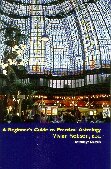
|
||
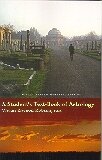
|
||
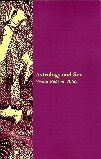
|
||
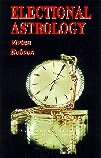
|
||
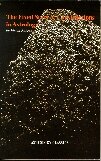
|
||
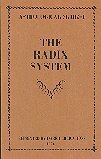
|
||

207 Victory Lane, Bel Air, MD 21014
Tel: 410-638-7761; Toll-free (orders only): 800-475-2272
| Home | Author Index | Title Index | Subject Index | Vedic Books | Tarot | E-Mail: |
Established 1993, The Astrology Center of America is owned & operated by David Roell.
This entire site (AstroAmerica.com) is copyright 1996, 1997, 1998, 1999, 2000 by William R. Roell.
All rights reserved.